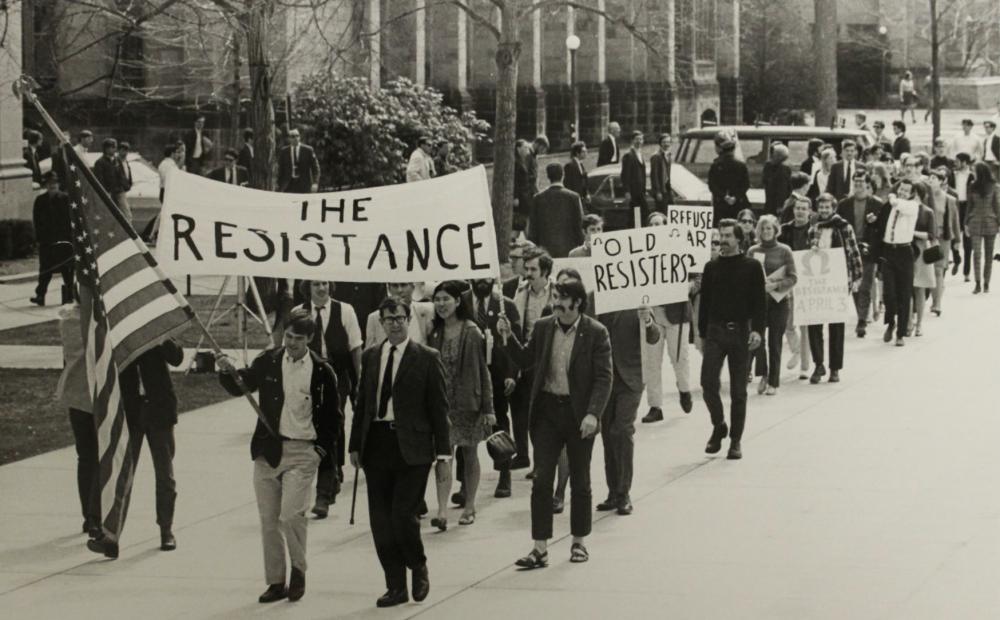As I ponder what my generation of Americans will leave to those who follow, I am troubled by the gulf that separates us along class and ideological lines. Most recently, an analysis of meaning of war in the context of the World War II, Korean War and Vietnam War monuments illustrated the growing divide. I am a veteran (US Army 1968-71), but claim no writ to speak for fellow vets, except, perhaps for those whom I know personally and with whom I have discussed these issues.
The Vietnam War may well be regarded by future historians as marking the start of increasing chasm between the elites and the rest. To borrow from David Halberstam, the “Best and Brightest” led us into the war, directed its conduct and let it continue after they knew that there was no way we would prevail at a price the US was willing to pay. To say that we were deceived is an understatement. But unlike World War II and the Korean War, the sons and daughters of the “best and brightest” generally did not take part in the Vietnam War. Elite colleges and universities were generous with grading and easing of deadlines.
Other ways of legally evading military service were legion, especially for wealthy or well-connected. But those who served did not think of themselves as “victims.” In some phases of the war, volunteers were a majority of those in-country and, of course, all the women in uniform were volunteers. Those who survived the Vietnam War to run their fingers over the name of a friend understand that wall as honoring, not elegizing or singing mournful laments over them. There was in fact a vigorous debate over the inherent nature of Vietnam Memorial and the decision was to honor those who served and sacrificed their lives.
Having a military force composed entirely of volunteers raises a number of public policy questions beyond the scope of this essay. But the all-volunteer force doubtlessly exacerbates the gap between the “elites” and the rest, just as it increases the social and political distance between those who wear the uniform and those who do not. This separation is mirrored in the declining tolerance of differing political views and even reflected in the trend towards choosing residences in areas populated by like-minded thinkers. We — and especially the “elites” — would do well to focus on ways to reduce or bridge the cleavages.
Following studies at Tulane University, the University of Paris and the University of Wisconsin, Matt Daley spent most of his adult life with the US Government, to include the Army, the Secret Service and the Foreign Service where he concentrated on South and Southeast Asia. His psychologist daughter describes this as a 35 year period of institutionalization. Matt then became President of the US-ASEAN Business Council until he retired in 2009 and transitioned to life on the Eastern Shore.



Write a Letter to the Editor on this Article
We encourage readers to offer their point of view on this article by submitting the following form. Editing is sometimes necessary and is done at the discretion of the editorial staff.